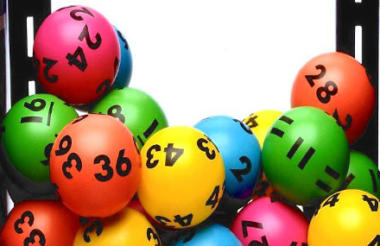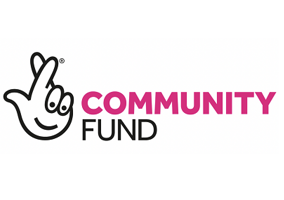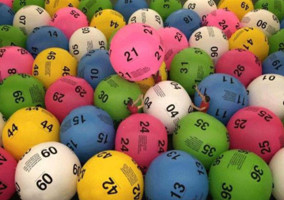The Gambling Commission has named Allwyn as the preferred applicant for the fourth National Lottery Licence, beating Camelot, which has held the title for 28 years.
Camelot has faced criticism in recent years for the drop in funds going to good causes. Allwyn has pledged to donate £38bn to good causes over the next decade, while Camelot has raised £45bn since 1994.
Camelot has been named the reserve applicant, meaning that if the Gambling Commission cannot finalise the licence with Allwyn it will turn to Camelot.
Allwyn is set to take over in early 2024 and will hold the role for a fixed ten-year term.
Following today's announcement there is a ten-day legal standstill, before any legal agreements are entered into.
Camelot CEO Nigel Railton said: “I’m incredibly disappointed by today’s announcement, but we still have a critical job to do – as our current licence runs until February 2024. We’re now carefully reviewing the Gambling Commission’s evaluation before deciding on our next steps.”
The applications for the fourth National Lottery Licence were the highest since it started being awarded 28 years ago, the Gambling Commission said. Other applicants included Sisal Spa, Camelot and The New Lottery Company Ltd.
Barnardo’s was involved in the rival bid to run the National Lottery with Sisal Spa, an Italian lottery company. The children’s charity had hoped to deepen the understanding of the UK charity sector in the lottery process.
Andrew Rhodes, Gambling Commission chief executive officer, said: “In its lifetime, the National Lottery has raised more than £45bn for good causes and is rightly seen as a great national asset.
“Our priority was to run a competition that would attract a strong field of candidates. Having received the most applications since 1994, it is clear that we've achieved just that.
“I am confident that the success of the competition will lead to a highly successful fourth licence – one that maximises returns to good causes, promotes innovation, delivers against our statutory duties, and which ultimately protects the unique status of the National Lottery.”
Breathing 'fresh life' into the lottery
Allwyn already runs national lotteries in Czech Republic, Greece, Cyprus, Italy, and Austria.
In a statement Allwyn said: “The appointment of Allwyn will breathe fresh life into The National Lottery. In Allwyn, the Gambling Commission has selected a strong team with an impressive track record of improving lotteries.”
Allwyn’s UK chair, Justin King, added: “I’m delighted that Allwyn’s proposal has been deemed the strongest to grow good causes in the safest and most sustainable way possible. The Gambling Commission has run a lengthy and detailed process, and I’ve been extremely impressed by the attention they have paid to the challenges facing The National Lottery over the coming decades. The National Lottery is a vital British institution and we’re focused on ensuring it plays an even bigger part in society by increasing participation, improving safeguards, and giving back more to good causes.”
The impact of the Russia-Ukraine war
On Allwyn’s appointment, the Gambling Commission said: “Recognising our role as a responsible regulator we are also satisfied that no application is impacted by sanctions related to the conflict in Ukraine.”
However, the Labour Party has raised concerns about alleged links to Russia's energy company.
Alex Davies-Jones, Labour’s shadow minister for tech, gambling and the digital economy, said: “At a time when the Putin regime is committing atrocities against the Ukrainian people, given the reported links between Allwyn and Gazprom, the government must set out that they are satisfied this company does not have links to the Russian regime.
“This is a big change for a valued British institution which has stepped in to invest in our communities and social fabric through a decade of government neglect.”
Allwyn is owned by KKCG, and investment group owned by Czech billionaire Karel Komárek.
Earlier this month Komárek addressed a public letter to the people of the United Kingdom after media speculation about links to Russian energy company Gazprom.
“Having long been alive to the realities of the Russian regime, and the unfavourableness of its attitudes towards legitimate enterprise, I have been investing heavily into Ukraine. I took the decision many years ago to divest and exit from Russian assets with the exception of a shareholding in a gas terminal which we have been trying to exit for a number of years and a 50/50 joint-venture with Gazprom on an underground gas storage facility in the Czech Republic,” he said.
This was “at the request of the Czech Government, to ensure an important Czech energy asset was not subject to full Russian control”, Komárek said.
He also that through his charity he has been helping Ukrainians.
“Through the Komárek Family Foundation and our partner on the ground in Lviv, we are supporting efforts to prepare for the arrival of large numbers of refugees by ensuring these people have a safe and warm place to sleep and food to eat,” he said.
Related articles












